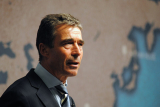
France kicks off a week of World War I commemorations from Sunday, with some 80 leaders from around the globe preparing to fly in for a ceremony marking a century since the guns fell
silent. French President Emmanuel Macron is gearing up for a busy week of diplomacy that will see him play host to leaders including US President Donald Trump and Russian counterpart Vladimir Putin.
He will also be criss-crossing northern France, visiting the battlefields where hundreds of thousands of men lost their lives in the trenches.
Macron will notably use the international spotlight to issue a rallying cry against populism -- in the presence of "America First" Trump and other nationalist leaders.
The commemorations will culminate in a ceremony at the Arc de Triomphe in Paris on November 11 attended by dozens of leaders including Trump, Putin and Germany's Chancellor Angela Merkel, 100 years to the day since the armistice.
The ceremony at the Tomb of the Unknown Soldier on the Champs-Elysees avenue will be held under tight security following a string of deadly jihadist attacks in France over the past three years.
Remembrance events begin on Sunday, November 3 with a concert celebrating friendship between former wartime enemies France and Germany in the border city of Strasbourg, attended by Macron and German President Frank-Walter Steinmeier.
Macron will then spend the week visiting the Western Front battlefields, from Verdun to the Somme.
On Tuesday, in honour of the "black army" of former colonial troops who fought alongside the French, he and Mali's President Ibrahim Boubacar Keita will visit Reims, a city defended by the African soldiers.
Britain's Prime Minister Theresa May will join Macron on the Somme on Friday, while on Saturday he heads to the village of Rethondes, where the armistice was signed, with Merkel.
- Macron's war on nationalism -
War commemorations aside, Macron is set to use his tour of northern France to visit areas hit hard by industrial decline, where far-right leader Marine Le Pen performed strongly in last year's presidential election.
"After paying homage to those who died for their country it will be back to dealing with social and economic problems," said Bruno Cautres of political think-tank CEVIPOF.
Macron -- who has struggled to shake off an image as a "president of the rich" -- will zip through 17 towns, holding Wednesday's weekly cabinet meeting in the Ardennes, an area which was battered by the war and today suffers high unemployment.
The 40-year-old president, whose approval rating is languishing at a dismal 21 percent according to a YouGov poll released Thursday, has dismissed rumours that he is suffering from burn-out.
He sparked rampant speculation by taking a few days off ahead of the tour, which aides have insisted were to gather his energy before an intense week of diplomacy.
This week is an opportunity for the centrist to "reflect a strong presidential image" both at home and abroad, Cautres said.
Macron is set to use his speeches to hammer home warnings of the dangers of nationalism at a time when populists are on the march around Europe and beyond.
In an interview Thursday, he said Europe risked a return to the 1930s because of the spread of a nationalist "leprosy" across the continent.
"I am struck by similarities between the times we live in and those of between the two world wars," he told the Ouest-France newspaper.
"In a Europe divided by fears, the return of nationalism, the consequences of economic crisis, one sees almost systematically everything that marked Europe between the end of World War I and the 1929 (economic) crisis."
Macron is attempting to position himself as a champion of centrist politics and multilateralism in the run-up to European parliamentary elections in May, saying he expects the duel to be one between "progressives" and "nationalists".
After next Sunday's ceremony, world leaders are set to attend a three-day peace forum opened by Merkel, an event which France wants to turn into an annual multilateral peace conference.afp











































